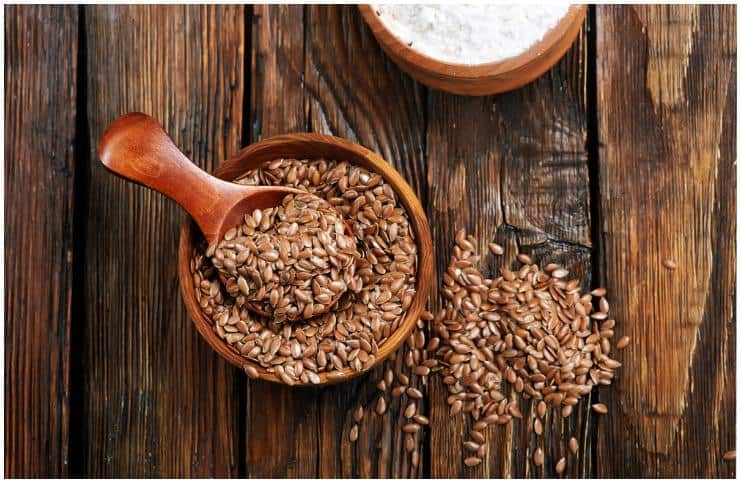Lovaza vs Vascepa – detailed comparison:
Lovaza
It is the brand name of a product that contains omega-3 fatty acid capsules.
It is produced from fish oils that work by lowering the liver production of triglycerides.
This prescription medicine contains two types of omega-3 fatty acids: docosahexaenoic acid (DHA) and eicosapentaenoic acid (EPA).
This product is marketed by GlaxoSmithKline, a British pharmaceutical company with headquarters in Brentford, London. The US Food and Drug Administration originally approved it in 2004.
Uses
This prescription medication is typically used to lower very high triglycerides in the blood. Triglycerides are a type of fat found in your blood.
Triglycerides are derived directly from dietary fats. In addition, triglycerides are made in the body from carbohydrates. As with cholesterol, high triglycerides can clog arteries, which can lead to stroke and heart attacks.
High triglycerides are typically caused by:
- kidney disease;
- obesity;
- drinking a lot of alcoholic beverages;
- a diet high in saturated fat and junk food;
- a low-fiber diet;
- poorly controlled type 2 diabetes mellitus;
- regularly eating more calories than you burn;
- taking certain medicines, including – beta-blockers, birth control pills, corticosteroids, and antipsychotics;
- an underactive thyroid.
Note – high triglyceride levels are linked with a higher risk of cardiovascular disease. Also, it can lead to liver disease.
Dosage
The usual recommended dose is 4 grams a day. Each capsule has 840 mg of EPA and DHA Omega-3.
Side Effects
Common side effects may include:
- constipation;
- burping;
- changes in taste;
- diarrhea;
- mild stomach pain;
- nausea;
- mild heartburn.
Rare side effects may include:
- unusual bleeding or bruising;
- swelling of the face, mouth, lips, or tongue;
- irregular heartbeat;
- chest tightness;
- difficulty breathing.
Precautions
To be sure that this medication is safe for you, tell your healthcare provider if you have, or have ever had:
- allergies to fish, medicines, eggs, or soy;
- an irregular heartbeat or another heart problem;
- type 2 diabetes mellitus;
- liver or pancreas problems;
- an underactive thyroid;
- a blood clotting problem.
Alcohol
Drinking alcoholic beverages while taking this medicine may affect your triglyceride levels in a negative way.
Drug Interactions
It may negatively interact with other medications, especially:
- diuretics (water pills);
- anticoagulants (blood thinners), like – Jantoven (warfarin) or Coumadin;
- estrogen replacement therapy;
- antiplatelet medications, like – Plavix (clopidogrel), Pletal (cilostazol), or Effient (prasugrel);
- dayquil;
- nonsteroidal anti-inflammatory drugs, like – Motrin (ibuprofen) or Naprosyn (naproxen);
- estrogen-containing contraceptives;
- beta-blockers, like – Trandate (labetalol), Tenoretic (atenolol), Corzine (nadolol), or Inderide (propranolol);
- aspirin or products which contain aspirin.
Pregnancy & Breastfeeding
This medication passes into breast milk. Do not breastfeed a baby while taking this medication without first talking with your healthcare provider.
Also, it is not known exactly whether this medication could harm an unborn baby if taken during pregnancy. Tell your healthcare provider if you are pregnant or plan to fall pregnant while using this product.
Vascepa
It is the brand name of icosapent, a medicine that belongs to a class of drugs called lipid-regulating or antilipemic agents.
This medicine contains ethyl esters of the omega-3 fatty acid obtained from wild, deep-water Pacific Ocean fish.
It works by increasing the number of triglycerides that are broken down in the bloodstream and by lowering the number of triglycerides that are made in the liver.
It is produced by Amarin Pharma, Inc., a biopharmaceutical company focused on the development of therapeutics to improve cardiovascular health. The US Food and Drug Administration originally approved this medication in 2012.
Uses
This prescription medication is typically used along with a low-cholesterol and low-fat diet to treat high triglyceride levels.
Dosage
The usual recommended intake is 4 grams taken as 2 capsules orally two times per day.
Side Effects and Precautions
Common side effects may include:
- joint pain.
Rare side effects may include:
- muscle pain or stiffness;
- difficulty with moving.
Contraindications
To make sure that this antilipemic agent is safe for you, tell your healthcare provider if you have:
- a thyroid disorder;
- liver disease;
- if you are allergic to fish or shellfish;
- type 2 diabetes;
- if you drink large amounts of alcohol;
- a blood-clotting disorder;
- problems with your pancreas.
Alcohol
Avoid drinking alcohol while taking this medication since even small amounts of alcohol can affect your triglyceride levels.
Drug Interactions
It may negatively interact with other medications, especially:
- tirofiban;
- rivaroxaban;
- tinzaparin;
- lepirudin;
- enoxaparin;
- fondaparinux;
- ticlopidine;
- ticagrelor;
- dabigatran;
- dalteparin;
- urokinase;
- bivalirudin;
- tenecteplase;
- argatroban;
- a beta-blocker, such as – labetalol, atenolol, nebivolol, metoprolol, or propranolol;
- eptifibatide;
- dayquil;
- reteplase;
- hormone replacement therapy;
- abciximab;
- diuretics;
- a blood thinner, such as – warfarin or Jantoven;
- romiplostim;
- birth control pills;
- prasugrel;
- alteplase;
- anagrelide.
Pregnancy & Breastfeeding
It is not known exactly whether this medication could harm an unborn baby if taken during pregnancy. Tell your healthcare provider if you are pregnant or plan to fall pregnant while using this product.
Also, this medication passes into breast milk. Do not breastfeed a baby while taking this medication without first talking with your healthcare provider.
READ MORE: Fiorinal vs Fioricet
Bottom Line – Lovaza vs Vascepa
Lovaza is a prescription medicine that contains two types of omega-3 fatty acids: docosahexaenoic acid (DHA) and eicosapentaenoic acid (EPA). It is typically used to treat high triglycerides.
Vascepa is a medicine that is used to lower very high levels of triglycerides in adults. It contains a type of omega-3 fatty acid known as eicosapentaenoic acid (EPA).
In conclusion, the main difference between these two medications is that Vascepa contains only EPA, while Lovaza contains both EPA and DHA.
However, a healthy diet is an essential part of getting your triglycerides under control.
As a matter of fact, according to the AHA (American Heart Association), regular moderate physical exercise and a healthy diet (low-fat and low in cholesterol) are even more important than medications that lower triglycerides.
Here are 6 tips to help you lower your triglycerides without medications:
#1 Cholesterol
Limit your total dietary cholesterol to 200 mg a day.
Even better, avoid foods that contain cholesterol completely.
READ MORE: Theraflu vs Alka Seltzer
#2 Fiber
Make sure you have plenty of dietary fiber in your regular nutrition.
Foods high in fiber include – oatmeal, oat bran, broccoli, quinoa, flax seeds, chia seeds, walnuts, almonds, chickpeas, lentils, or red kidney beans.
#3 Omega 3
Eat 1 tbs of flax seeds or chia seeds every day. They are high in omega-3 fatty acids, which help lower triglycerides.
#4 Refined Sugars
Avoid foods that contain added sugars, like – chocolates, candies, pies, or cakes.
READ MORE: Alka Seltzer vs Tums
#5 Alcohol
Avoid alcohol since it is full of empty calories, which are especially bad for high triglycerides.
#6 Fruits & Vegetables
Eat plenty of fresh organic fruits and vegetables.
#7 Saturated Fats & Trans Fats
Reduce your intake of trans fats and saturated fats. These are found in fast foods, animal products, and other packaged foods.
READ THIS NEXT: Gammagard vs Gamunex – detailed comparison
References http://www.lipidjournal.com/article/S1933-2874(17)30226-X/pdf https://www.ncbi.nlm.nih.gov/pmc/articles/PMC2683599/ https://www.sciencedirect.com/science/article/pii/S1933287412000165






